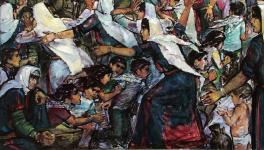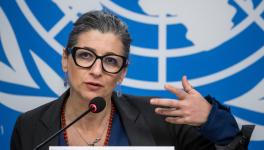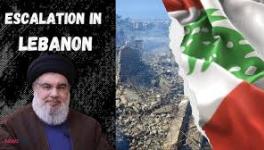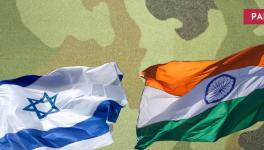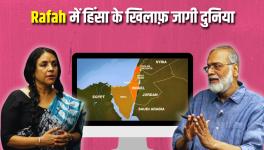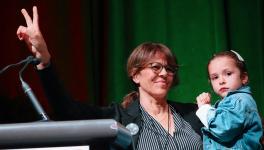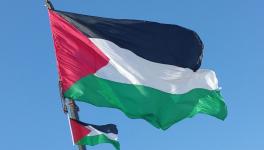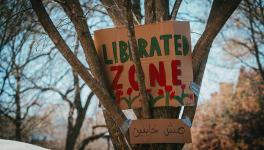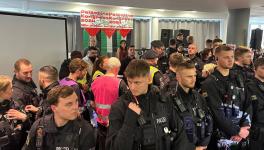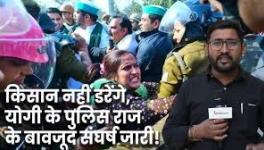Palestinian Politicians Face Tide of Persecution in Israel
The warning came after Said Nafaa, a Druze member of the Israeli parliament was stripped of his immunity last week, clearing the way for him to be tried for a visit to Syria three years ago.
In recent weeks legal sanctions have been invoked against two other Arab political leaders, following clashes with the Israeli security forces at demonstrations against the occupation, and pressure is growing for two more MPs to be investigated.
Arab politicians are particularly concerned about a bill introduced last month requiring all parliamentary candidates to swear loyalty to Israel as a Jewish state. If passed, the seats of the 10 Arab MPs belonging to non-Zionist parties in the 120-member parliament, or Knesset, would be under threat.
Jamal Zahalka, one of those MPs, said: "Every week either the Knesset or the government try to impose new restrictions on our activities and freedom of speech. There is a growing trend towards anti-democratic legislation."
Nafaa, the latest target for legal action, was stripped of his parliamentary immunity from prosecution last week by a Knesset committee dominated by the right wing.
Keeping his immunity was his only hope of avoiding a trial after he was indicted by the attorney general, Menachem Mazuz, in December over a visit he organized in 2007 to Syria, considered an enemy country.
The MP had arranged for a group of 280 Druze clerics to make pilgrimage to Syria's holy sites via Jordan after they had been repeatedly refused a permit by the interior ministry. Nafaa has argued that the clerics were being denied their religious freedom.
Afu Aghbaria, an Arab MP, called the case political persecution and asked the committee: "Do you think he organized an espionage trip with 280 people?"
Nafaa is also charged with contact with a foreign agent. According to the testimony of one of his assistants, who was interrogated by the Israeli secret police, the MP discussed the feud between Fatah and Hamas with Talal Naji, a Syrian leader of the Popular Front for the Liberation of Palestine, and tried to meet Khaled Meshaal, the head of Hamas in Damascus.
Nafaa, who denies meeting Naji, maintains that his visit was entirely political in nature and that the Knesset's actions are designed to prevent him from fulfilling the role he was elected for by the Arab minority, one in five of Israel's population.
Ahmed Tibi, the only Arab MP on the panel hearing the immunity case, said Arabs politicians, instead of being prosecuted, should be encouraged to build bridges to the Arab world on behalf of Israel.
Orna Kohn, a lawyer with Adalah, a legal centre representing Nafaa, said that, whereas the immunity of Jewish legislators was removed in cases of corruption and serious criminal offenses, the revocation of immunity for political activities was "very rare" and appeared to apply only to Arab MPs.
The last case was against Azmi Bishara, who was tried in 2001 on two counts -- for a visit to Syria and for alleged incitement during a speech -- both of which were rejected by the courts.
Arab MPs have avoided trips to much of the Arab world since the so-called Bishara Law of 2008 granted the government powers to bar anyone who makes an unauthorized visit to an enemy state from standing as a candidate.
Get the latest reports & analysis with people's perspective on Protests, movements & deep analytical videos, discussions of the current affairs in your Telegram app. Subscribe to NewsClick's Telegram channel & get Real-Time updates on stories, as they get published on our website.









